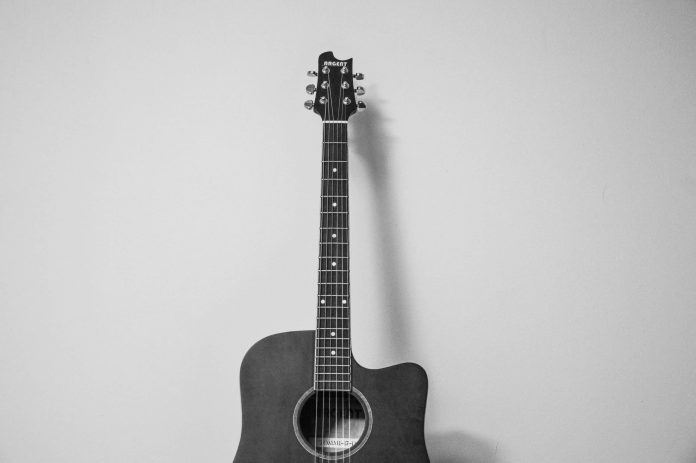By Jonathan Jones
“Last night I dreamt I went to Manderley again.” Whenever I think of the opening line to De Maurier’s Rebecca, I’m aware of a telling gap, not only in my reading, but also my own memory. It has always managed to evoke, even echo a thought I often had as a child on waking, that it was still dark outside. A news report coming in, confused by static. Maybe a radio in another room, light downstairs. It was like at first, nothing had happened, a recurring dream that spoke with a voice both present and at the same time absent. My father told me once that the name he initially thought he heard when he turned on the news was “Lenin.” Apparently it took him a few moments to realize, it wasn’t the Tsar’s Winter Palace going up in flames. All that chaos and violence and shooting and the promise of a new world waiting at the end. I sometimes wonder if he remembers telling me that story, waking up one winter morning to a different name, the definitive end of another era.
The first picture I remember seeing of John Lennon was the Double Fantasy album cover. It’s an image that seems to float around my childhood with a vengeance. The day Lennon died I must have gone to school, although I don’t recall any special announcement at assembly, or anything that stands out to tell me I was present that particular day. All I know is at some point I was in bed and I knew it was still too early to get up, because it was still dark outside. Beyond that, only my parents movements below me and the front door closing, as my father left for work. It was years before I realized what had happened and by then it was a memory fashioned by snippets of TV and the film footage, flaky in its original transmission. But a memory nevertheless, which had nothing to do with the real memory of my dad closing the door, as he left the house that day.
I was five years old at the time and to be honest can’t say for sure, what my own feelings were on the subject. It’s all too easy to suggest our earliest memories reveal some telling inner glimpse into the adults we grow into. Yet when I think back, the years between my fifth and fifteenth birthday rarely found a clearer point of reference. The Eighties were too bright, too colorful by comparison to that day in December. T.V. that brought us up on game shows and cheap nostalgia. Back then trying to teach myself to whistle Jealous Guy, I knew the tune was how I felt for a long time, a permanent angst for the same city he came from. It was a post-lapsarian landscape I remember as a kid, muddy brown, tarmac cracked, whole streets abandoned and boarded up. The docks still so majestic and so tragic in their derelict hollows. A city I only knew from a distance, with its accent and its humor and its tough working intellect.
For a few years you’d hear Lennon’s name on TV or read something in a tabloid that tried to throw new light on what happened. The sheer crassness of the decade gave birth to any number of conspiracy theories, that it was the FBI who ordered his assassination, concerned that Lennon was about to re-enter public life with the release of his new album, conjecture that Reagan himself couldn’t afford such a high profile critic of his new ultra-right wing vision of America. The ghoulish Manchurian figure of Mark Chapman reading The Catcher in the Rye as a secret trigger ordering him to kill. When I came to read it myself I saw nothing in any of the book that struck me as particularly revealing, for me it was just a sad story. I’ve come to think that this is by far the more likely explanation. An unsolved mystery even with the gunman behind bars, the headline cipher of the modern age.
The only real clue I had to what it meant growing up, was that Double Fantasy monochrome photo of John leaning in to kiss Yoko. I still picture my father as a young man in much the same way, only I know this isn’t true. My dad never looked anything like Lennon in that picture and yet the association for me as a kid was immediate. Coming from Liverpool, he never claimed to have seen The Beatles at the Cavern and I came to feel quite proud of that fact, because he didn’t feel he had to lie about the 60’s. Anyone can come up with a story that way. It was the best of times, it was the worst of times. Everybody had a hard year. Liverpool during the 80’s hardly served to back up any story of a golden age under the auspices of the Fab Four. It was a real world, with no memory strong enough to weigh it down and yet by Christmas 1980, it seemed to have vanished out of sight. But the kiss still intrigues me; the subtle contrast of sentimentality and cynicism.
If I think of my mother through that same Double Fantasy lens, it’s not so easy to picture her as it is my father. How the light falls on Yoko’s face with John’s slightly shadowed. The way their lips are only just touching. To an extent, Lennon as an individual was far too radical in his music and his politics for her tastes, particularly that of his post-Beatles persona. When she heard he had died, I think the loss for her was in a sense much more immediate, like that kiss itself. A way of tracing back that was gone forever.
In one of his final interviews, Lennon said it was people his own age he was thinking about and trying to reach with Double Fantasy. A gentle enquiry as to how their own relationships were going, something along the lines of a pep-talk in a way. Would the last thirty years have compelled him to repeat or rephrase that question? Do our parents really want to talk about John Lennon anymore because if we, the current thirty-something generation do remember that day primarily through their eyes, how exactly does the day he died translate to our children? The language of childhood is one that comes later with time. Lennon had that in spades long after the point most of us learn the proper grammar. A way of speaking when you’re a kid, all too quickly forgotten. Those first waking moments unable to hear what my parents were saying to each other in another room. I often wonder if it was the same for anyone else. All I know is it remains a formative moment for me, where language and memory make their first real contact. Only I have no idea what it was they were saying, a hopeful guess that they loved each other or that the news broke their hearts. I still look at the Double Fantasy album and wonder sometimes. Last night I dreamt I went to Manderley again.
Jonathan Jones is a freelance writer currently living and working in Rome. His primary influences are Scott Fitzgerald, Raymond Chandler, Saki and Yann Martel. He qualified in 1999 with my M.A. in Creative Writing from Bath Spa University College and in 2004 with a Masters in Humanities from Keele University. He currently teaches writing composition at John Cabot University in Rome.


Get ready to connect to your joy, manifest the life of your dreams, and tell the truth about who you are. This program is an excavation of the self, a deep and fun journey into questions such as: If I wasn’t afraid, what would I do? Who would I be if no one told me who I was?
Jennifer Pastiloff, creator of Manifestation Yoga and author of the forthcoming Girl Power: You Are Enough, invites you beyond your comfort zone to explore what it means to be creative, human, and free—through writing, asana, and maybe a dance party or two! Jennifer’s focus is less on yoga postures and more on diving into life in all its unpredictable, messy beauty.
Note Bring a journal, an open heart, and a sense of humor. Click the photo to sign up.

Thank you for sharing this today.